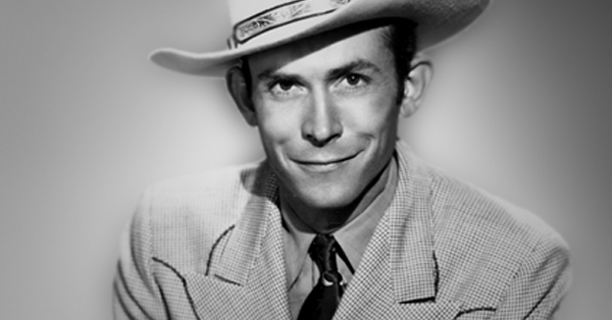In 1989, Papaw bought a brand new Ford pickup, white with a blue stripe. This was a gift to himself for surviving life for eighty years I suppose. That truck was the first new vehicle he had ever owned, his first ride being a two-horsepower convertible wagon with a split-rail oak seat. After leaving Murphy’s Ford dealership, his first stop was at Walmart to buy a cassette tape. He’d never had a tape deck before, or at least not one that worked. His second stop was the school to pick me up.
I still remember the smell: new car mingled with Old Spice and Lucky Strikes. And I remember how he grinned as he poked the tape into the radio’s mouth, rolled down the windows, and turned it up loud like he was trying to serenade the whole town. TAfter a while, he looked over at me and said, “That’s real music, boy.”
It was the first time I recall hearing the haunting wail of a lap steel and a voice that seemed so full of melancholy that if poured out in liquid form it would flood the whole earth with tears. “I saw him once,” Papaw said. “In Shreveport. Believe it was around 1949. He sang it like we felt it.”
At five years old, I couldn’t appreciate the poetic potency of midnight trains and weeping robins and purple skies. Heck, I didn’t even know what a whippoorwill was. But even then I knew heartbreak when I heard it.
We spent the next hour or so driving back and forth by the courthouse and making laps around the town square showing off the new truck and blaring sad old songs. When Papaw died the next year, my Uncle Ronnie got the new Ford. But not before I raided the tape deck. On the day of the funeral, I locked myself in my bedroom and refused to come out for the service. Instead, I laid in the floor with my head against the Boombox, playing and rewinding the same song over and over.
The silence of a falling star
Lights up a purple sky
And as I wonder where you are
I’m so lonesome, I could cry.
A few years ago, I found myself in Montgomery on business. I ate lunch at a small cafe on Commerce Street and was walking back to my car when I saw him staring at me through the window. He was dressed like 1950, half drunk and hollow-eyed. “My God,” I said under my breath, “You don’t look bad for a man your age.” Forever 29. Preserved in bronze, but immortalized in song. I decided since I was already there that I shouldn’t miss the opportunity to go in and pay my respects to Luke the Drifter.
The museum is small. No flashing neon signs, no garrish billboards. More flea market than Smithsonian, you’re greeted at the door by an oversized Kawliga and surrounded by walls lined with Stetsons, suits, and black and white photographs. They’ve got t-shirts and vinyl, guitars and postcards, and an old 52’ Cadillac that has passed into myth as much as the man himself.
There’s an old jukebox there that plays nothing but Hank. When I walked in, he was moaning about love gone wrong: she was cheating, he was broken up about, but it always ended the same for him, “You Win Again,” he confessed. A few minutes later he was going on about her “Cold, Cold Heart.” The man had it bad.
Before I left, I walked over and punched the numbers on the antique Victrola. It creaked and popped and loaded a record that had been all but sliced in two by the needle and perpetual requests.
In an instant, I was back in that old Ford making laps around the square. I was there with my face buried in the tear-soaked carpet of my childhood bedroom. And I was present at a hundred other times and places of bittersweet significance. I’d spent countless hours thinking about the man in the radio, my musical link to the man in the driver’s seat of that 89’ Ford so calcified by life that he had to let others do his crying for him. It was a surreal moment, standing there beside the statue of a man who, though dead, will still be singing when my grandchildren are dust and ashes.
Hear that lonesome whippoorwill
He sounds too blue to fly
The midnight train is whining low
I’m so lonesome, I could cry
“That one’s my favorite,” said the middle-aged bottle-blond who was manning the souvenir desk.
“Yes, ma’am,” I said. “That’s real music.”







That was my HW favorite too.
I also miss the days when a woman knew her place, and the coloreds too!
“so calcified by life that he had to let others do his crying for him.”
Thanks. Well done.
Let me tell you, Brandon Meeks has such a way with words that one has to stop and re-read a phrase or sentence to enjoy the thrill of “Oh, my!”
I believe all Southron’s experience a unique brand of sadness borne out of our shared experience. We all moan the blues, some, like HW sr., better than most. Thanks for your usual excellence.
Great article!
One of my favorites is I Saw the Light.
Bob
Stow, Ohio
A tour de force piece of writing, Mr. Meeks. Bravo! And, thank you.
Wonderful essay Mr. Meeks. There is no one who can truly understand the word lonesome like a real Southerner. It is an ache that can’t be defined. Ilove your style of writing.